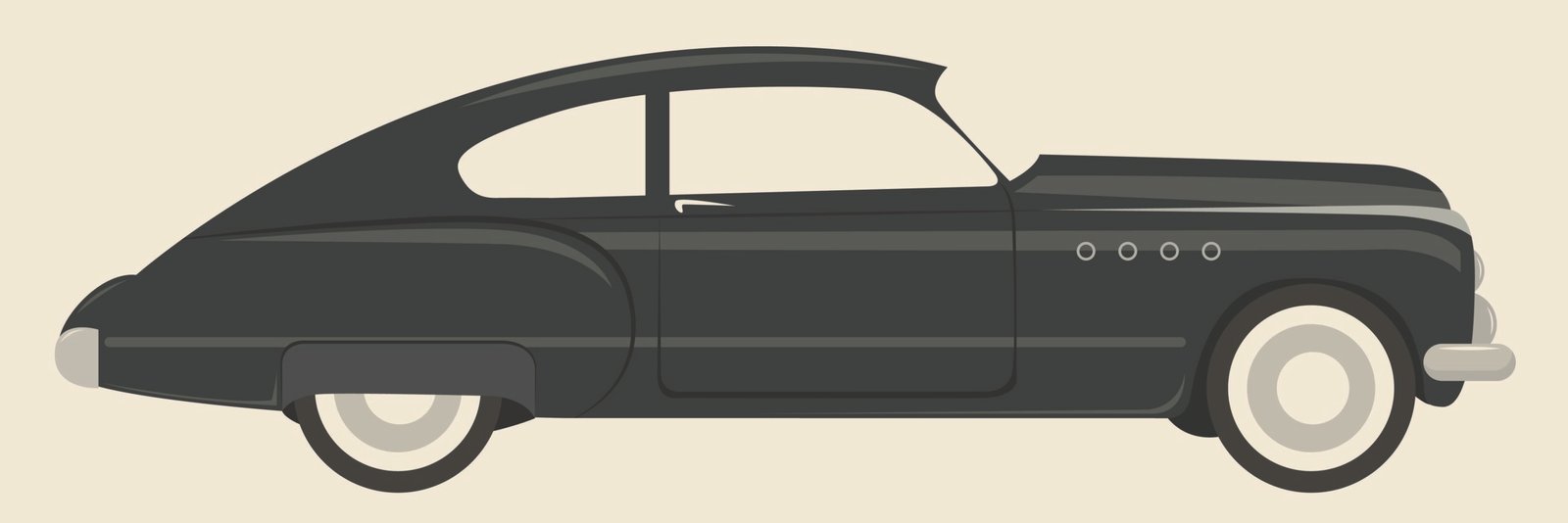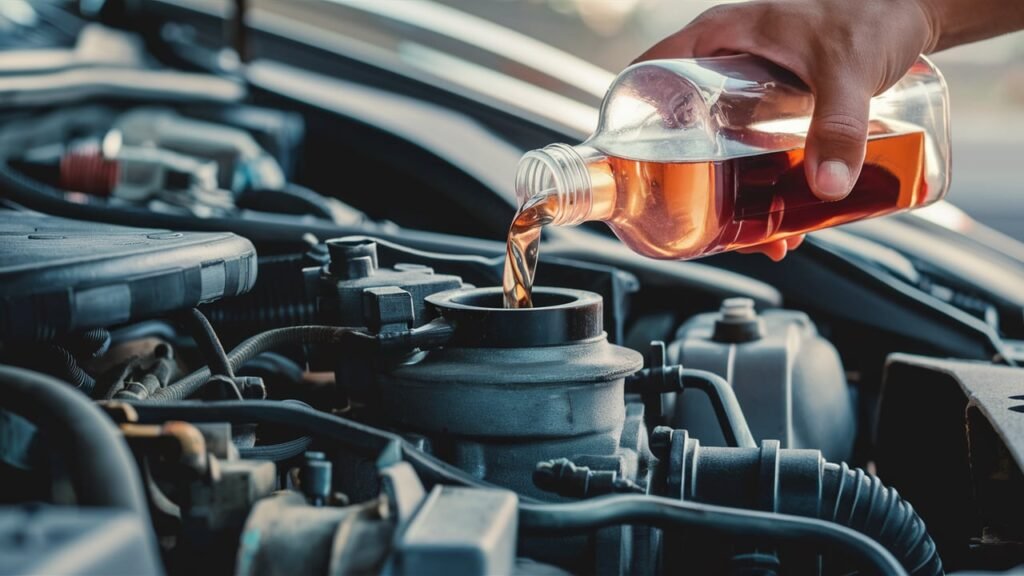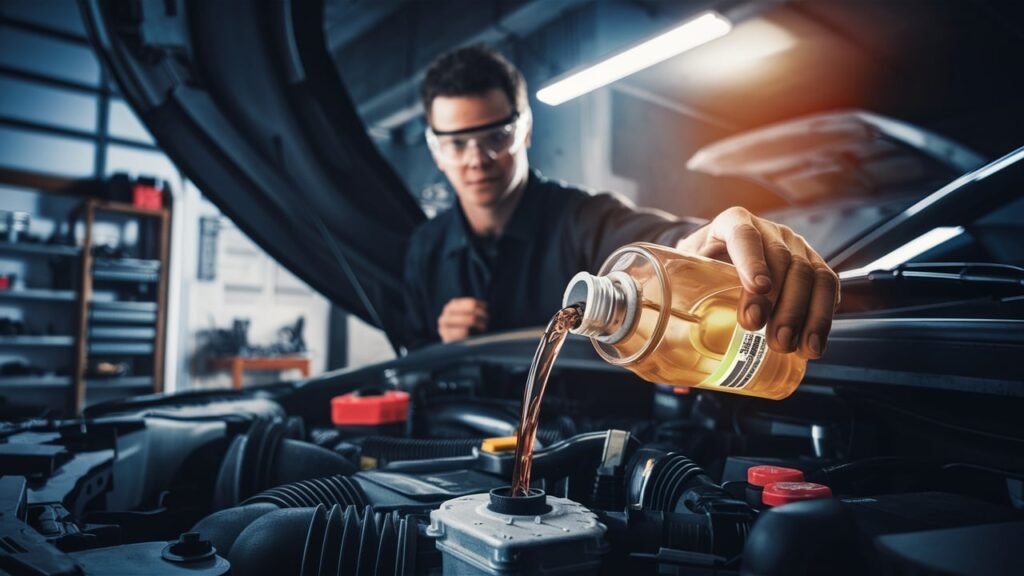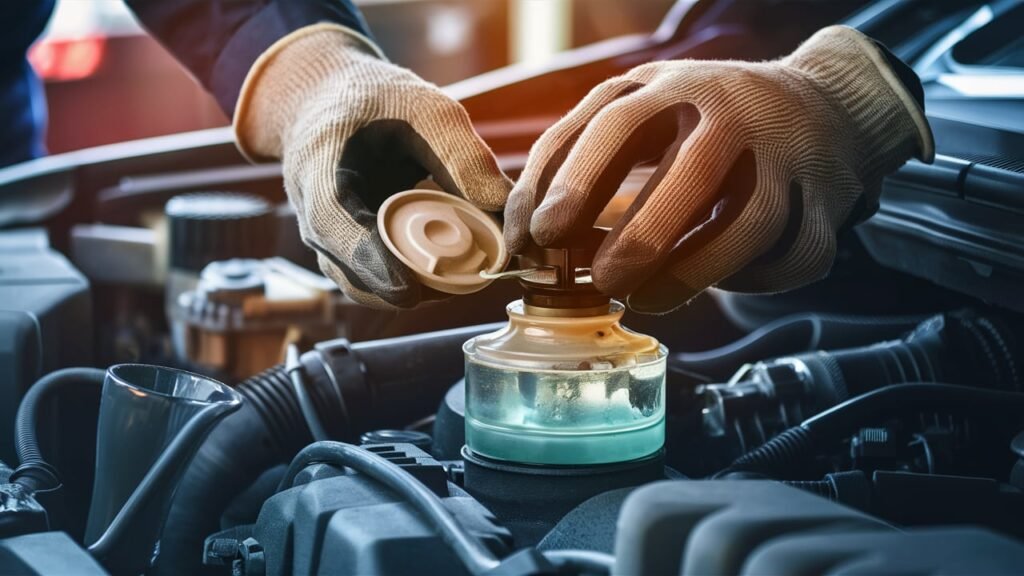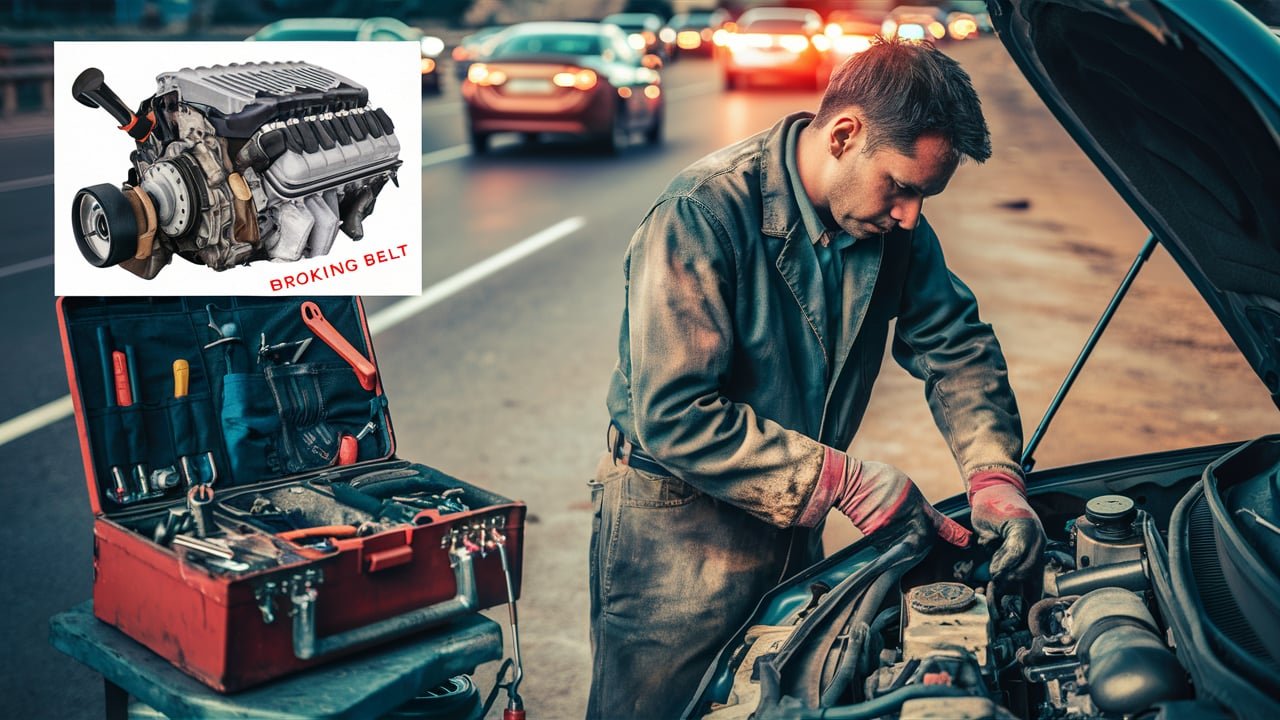
7 Reasons Why Your Car Engine Dies When You Stop
When your car’s engine abruptly goes silent as you come to a stop, it can be a perplexing and frustrating experience. This phenomenon of an engine dying when you stop is a common occurrence that plagues many drivers, leaving them puzzled about the underlying causes.
Understanding these reasons becomes pivotal not only in diagnosing the issue but also in proactively preventing future breakdowns at inconvenient moments. By unraveling the technical intricacies behind why your car engine stalls when halted, you equip yourself with valuable knowledge to ensure smooth and uninterrupted journeys.
Delving into the complexities of automotive systems unveils a myriad of factors that can trigger engine shutdowns during stops. From fuel system irregularities to electrical malfunctions, each component plays a critical role in determining the operational efficiency of your vehicle.
Unraveling this mystery isn’t just about fixing an immediate problem; it’s about empowering yourself as a car owner or DIY enthusiast to preemptively address potential issues before they escalate into major setbacks on the road. So buckle up as we navigate through seven fundamental reasons why your car’s heart—its engine—might unexpectedly fall silent when you hit the brakes or roll to a halt.
Fuel System Issues.
One of the primary reasons why your car engine may die when you come to a stop is related to issues within the fuel system. If your fuel tank is running low on gas, the engine might not receive enough fuel while idling, leading to a stall. Imagine driving on a nearly empty tank, finally coming to a stop at a traffic light, only for your engine to sputter and shut off due to insufficient fuel reaching the combustion chamber.
Furthermore, clogged fuel filters can impede the proper flow of gasoline from the tank to the engine. Picture a scenario where debris or contaminants block the filter, restricting fuel passage and causing your car’s engine to struggle to sustain idle RPMs. In extreme cases, this restriction can be severe enough to cut off the supply entirely, resulting in an abrupt stall when you pause your vehicle.

Moreover, problems with the fuel pump can disrupt the vital function of delivering fuel from the tank to the engine. Consider a faulty or failing fuel pump that struggles to maintain adequate pressure or volume while idling.
As you slow down and stop your car, insufficient fuel reaches the combustion chamber due to issues with this crucial component, leading to an undesirable shutdown. It’s essential for car owners to monitor their fuel levels and ensure regular maintenance of their vehicle’s fuel system components to prevent stalling incidents when stationary.
Electrical Problems.
When your car engine dies as you come to a stop, it could be attributed to underlying electrical issues. Components like spark plugs or the ignition coil play crucial roles in the combustion process. Malfunctioning spark plugs fail to ignite the air-fuel mixture effectively, leading to an abrupt shutdown of the engine when stationary.
Similarly, a faulty ignition coil may not produce the necessary high voltage for spark generation, causing stalling at stops. Harnesses and connections delivering power from the battery can also influence engine performance. Disrupted power supply due to poor wiring or loose connections can intermittently shut down vital components, resulting in sudden stalls.
Another critical electrical component that can impact engine operation is the alternator. The alternator is responsible for charging the battery while driving, ensuring a stable power supply for various systems within your vehicle.

If the alternator fails to charge the battery properly, vital electrical components may not receive adequate power during idling situations, leading to potential engine shutdowns when stopped. This highlights how even minor malfunctions within the electrical system can have cascading effects on essential functions, ultimately causing unexpected stalling episodes.
Understanding these electrical intricacies empowers car owners to diagnose and address potential issues proactively before they escalate into more significant problems. By staying vigilant towards symptoms like irregular idling or recurrent stalling when stationary, individuals can pinpoint electrical problems such as failing components or faulty connections promptly.
Regular inspections by trained technicians and adherence to scheduled maintenance routines regarding electrical system checks can help mitigate risks associated with engine shutdowns when coming to a halt.
Air Intake System Concerns.
The air intake system plays a crucial role in ensuring the proper functioning of your car’s engine, and any issues within this system can lead to stalling when stopping. One common culprit is dirty air filters, which over time can become clogged with debris, hindering the airflow into the engine.
This restriction can disrupt the engine’s idle control mechanism, potentially causing it to stall when coming to a stop. Regularly changing air filters as part of your maintenance routine can help prevent this problem.
Another vital component in the air intake system is the mass airflow sensor (MAF). If the MAF malfunctions or fails, it can disrupt the precise balance of air and fuel required for optimal combustion in the engine.
This disruption often manifests as stalling when idling or stopping due to an incorrect air-fuel mixture being delivered to the engine cylinders. Ensuring that the MAF sensor is clean and functions correctly can help avoid such issues.

Vacuum leaks in intake hoses are another common issue that can lead to irregular idling and eventual engine shutdown at stops. These leaks allow unmetered air to enter the engine, throwing off the carefully calibrated air-fuel ratio needed for efficient operation.
Detecting and repairing vacuum leaks promptly through inspection and sealing techniques will help maintain stable idling and prevent sudden stops due to inadequate airflow. Regular checks on these components empower car owners to address potential problems before they escalate into more severe issues impacting engine performance while stationary.
Idle Control System Malfunction.
When your car engine dies as you come to a stop, one of the underlying causes could be an issue with the idle control system. This vital system comprises components like the idle air control valve, throttle body, and throttle position sensor, which play crucial roles in maintaining a stable engine idle.
A faulty idle air control valve can disrupt the precise regulation of airflow needed for proper idling, leading to stalling when stationary. Picture this valve as the conductor orchestrating the balance of air entering your engine at rest.
Moreover, complications with the throttle body or its associated sensor can hinder smooth idling performance. The throttle body acts as a gateway regulating the amount of air flowing into the engine during idle conditions.
Any malfunction here can throw off this delicate harmony and result in erratic engine behavior, including unexpected shutdowns at stops. Think of it like a tap that needs to be perfectly calibrated to ensure just the right amount of airflow enters your engine for consistent operation.

Furthermore, accumulated carbon deposits on idle components can also contribute to irregular idling patterns and sudden stalling episodes. Imagine these deposits as tiny barriers disrupting the seamless flow of air necessary for stable engine function when you pause your vehicle.
Even minor buildup over time can impede proper airflow management within the system, causing disruptions that manifest as inconvenient halts in engine operation during your commute.
Regular maintenance addressing these potential concerns is essential for keeping your car running smoothly, especially when coming to a stop becomes unexpectedly problematic due to idle control system malfunctions.
Overheating Engine.
Car engines rely on efficient cooling systems to maintain optimal operating temperatures. When an engine overheats, it can lead to automatic shutdowns, especially when the vehicle is at a standstill.
Coolant leaks or issues with the radiator can disrupt the cooling process, causing temperatures to rise rapidly. For instance, a leaking coolant hose may result in a loss of fluid needed for proper engine cooling, leading to overheating and eventual stalling.
Furthermore, problems with the cooling system fans play a crucial role in preventing engine overheating, particularly during stops where airflow is limited. If these fans fail to kick in or are faulty, they may not provide sufficient cooling air, causing the engine temperature to spike.
An example could be a defective fan relay that fails to activate the cooling fans as needed, resulting in inadequate heat dissipation and potential stalls when idling.
Another common cause of engine shutdowns due to overheating is insufficient coolant levels. Without enough coolant circulating through the system, the engine loses its ability to regulate temperature effectively.

This scenario can occur if there’s a leak in the system or if coolant hasn’t been regularly topped up as part of maintenance routines. For instance, neglecting routine checks on coolant levels can lead to gradual depletion over time until critical levels are reached, triggering automatic engine cut-off mechanisms.
In summary, ensuring proper functioning of components like radiators, cooling fans, and maintaining adequate coolant levels is essential for preventing engine overheating and subsequent shutdowns when your car comes to a stop.
By addressing these potential issues proactively through regular inspections and maintenance, drivers can mitigate the risk of their engines dying unexpectedly due to overheating-related complications.
Sensor Failures.
When your car engine dies as you come to a stop, sensor failures may be at the root of the issue. For instance, the crankshaft position sensor plays a crucial role in providing timing signals to ensure proper engine function.
If this sensor fails, miscommunication within the engine can occur, leading to unexpected stalling at idle. Similarly, an oxygen sensor that is malfunctioning can disrupt the calibration of the air-fuel ratio in the engine, resulting in shutdowns when the vehicle is stationary.
Moreover, problems with various sensors like camshaft position sensors can cause erratic behavior and sudden stoppages of the engine. These sensors are essential for coordinating precise movements within the engine for optimal performance.
If any of these sensors are not functioning correctly, it can throw off critical timings and data required for smooth operation during idling situations. Therefore, diagnosing and addressing sensor issues promptly is vital in ensuring uninterrupted operation of your vehicle’s engine.

Imagine cruising down a highway only to have your car sputter and turn off when stopping at a red light due to a faulty sensor. The inconveniences caused by sensor failures can be frustrating and potentially dangerous if left unresolved.
Understanding how these sensors contribute to the overall functionality of your car’s engine empowers you to take proactive measures in maintaining them to prevent unexpected shutdowns during stops. Regular inspections and timely replacements of faulty sensors are key steps in avoiding such disruptions and ensuring a safe driving experience overall.
Routine maintenance.
Routine maintenance plays a paramount role in the longevity and smooth operation of your vehicle’s engine, significantly reducing the chances of it dying when you come to a stop.
Regular servicing conducted by trained professionals not only keeps your car running efficiently but also allows for the early detection of looming issues that could potentially lead to stalls during idle moments.
Picture this: a timely check-up unveils worn-out spark plugs that, if left unattended, could misfire and cause your engine to sputter and die every time you hit a red light.
Moreover, routine inspections focusing on critical components like air filters and fuel filters are fundamental in ensuring uninterrupted engine performance. Consider the scenario where a clogged air filter impedes airflow, causing the engine to struggle at stops and ultimately shut down unexpectedly.
By proactively replacing these filters as part of scheduled maintenance, you create an environment where adequate air and fuel can be delivered seamlessly to the engine, averting any shutdown surprises during pauses on the road.
Furthermore, monitoring fluid levels such as coolant and oil is not merely about preventing your engine from overheating or seizing up; it’s about safeguarding against sudden breakdowns that might catch you off guard. Imagine driving on a scorching day only to find yourself stuck with an overheated engine due to low coolant levels neglected during routine checks.
Maintaining proper fluid levels ensures optimal lubrication for moving parts and efficient cooling mechanisms within the engine—essentials for preventing stalling incidents when idling at intersections or traffic lights. In essence, committing to regular maintenance routines acts as proactive insurance against inconvenient engine failures that may occur when you least expect them.
DIY troubleshooting tips.
DIY troubleshooting tips can empower car owners to address engine stalling issues when stopping. Utilizing OBD-II scanners to check for error codes is a practical approach to gaining insights into the potential causes of engine shutdowns.
For instance, a specific error code related to the idle control system can indicate issues with components like the idle air control valve or throttle body, prompting targeted investigations and corrective actions. By engaging in this diagnostic process, drivers can identify the root of the problem efficiently.
Furthermore, conducting DIY inspections on common suspects such as clogged filters or loose electrical connections plays a pivotal role in pinpointing minor faults leading to engine shutdowns at stops.

For example, a simple visual examination revealing a contaminated air filter restricting airflow may explain idling irregularities and provide an easy fix solution that prevents sudden stall incidents. This hands-on approach not only saves on repair costs but also fosters a deeper understanding of how these maintenance tasks impact overall engine performance and reliability.
Educational resources offering insights into basic maintenance practices serve as valuable tools for enhancing car owners’ mechanical knowledge. By learning about fundamental concepts like proper filter maintenance or the significance of secure electrical connections, individuals can proactively tackle issues causing engine stalls upon cessation.
These guides not only equip drivers with essential skills but also cultivate a sense of confidence in handling routine vehicle upkeep independently, ultimately promoting safer and smoother driving experiences by mitigating unexpected stoppage occurrences.
Conclusion.
In understanding the intricacies behind why car engines die when you stop, we have delved into a range of potential issues that encompass fuel system concerns, electrical malfunctions, problems within the air intake system, idle control system failures, engine overheating challenges, sensor malfunctions, and stressed the vital role regular maintenance plays in preventing these interruptions.
By summarizing the causes that can lead to engine stalls upon stopping – from low fuel levels to sensor failures – car owners are equipped with knowledge that empowers them to address these dilemmas promptly. This comprehensive insight underscores the significance of proactive maintenance practices.
Regular checks and servicing not only ensure optimal vehicle performance but also serve as preventive measures against unexpected engine shutdowns during stops. Emphasizing routine upkeep of critical components such as filters and spark plugs stays paramount in steering clear of inconvenient stalling incidents.
By adopting a proactive approach towards maintenance, drivers can safeguard against engine-related disruptions at halts, fostering a seamless and uninterrupted driving experience.
